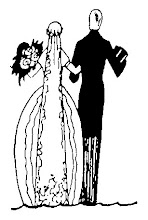Mere Christianity was written in order to set down what all Christians agreed on, not what we argue about. Lewis wrote it as an apologetic for the death, resurrection and incarnation of Christ. This is the testimony of Christ. Lewis says in the Introduction that, “Ever since I became a Christian I have thought that the best, perhaps the only, service I could do for my unbelieving neighbors was to explain and defend the belief that has been common to nearly all Christians at all times.” This goal was the premise of Mere Christianity.
Lewis had not been a Christian most of his life, and therefore had an affinity for skeptics. He felt that by explaining Christianity in this most basic way he could win some of them over to his way of thinking. He sets out to show the superiority of the Christian worldview over the naturalistic and pantheistic worldviews. He wanted Mere Christianity not necessarily to be a theological treatise nor a dogmatic, but rather a way of living and thinking.
He sets out to prove his thesis, that Christianity is a far superior world-view, by separating his material into four different sections. The first book is titled, “Right and Wrong as a Clue to the Meaning of the Universe.” The second book is titled “What Christians Believe.” The third book is titled "Christian Behavior”, and the last book is titled “Beyond Personality: or First Steps in the Doctrine of the Trinity.”
The first part begins by showing that all humans by nature have some sort of agreement as to what is right and wrong. Lewis calls this the Law of Nature and this law governs all humans. Moderns have come to believe that the laws of nature are the scientific laws such as gravitation or the laws of physics. However, the laws of nature, according to Lewis, are the moral laws that govern human behavior. The difference between the two is that humans do not choose gravity or scientific laws, but can choose to either obey or disobey the moral laws that govern everyone.
More to come..................Lynn




2 comments:
Ah, you are good at this! You've captured it so concisely.
Good summary, L. Love you-B.
Post a Comment